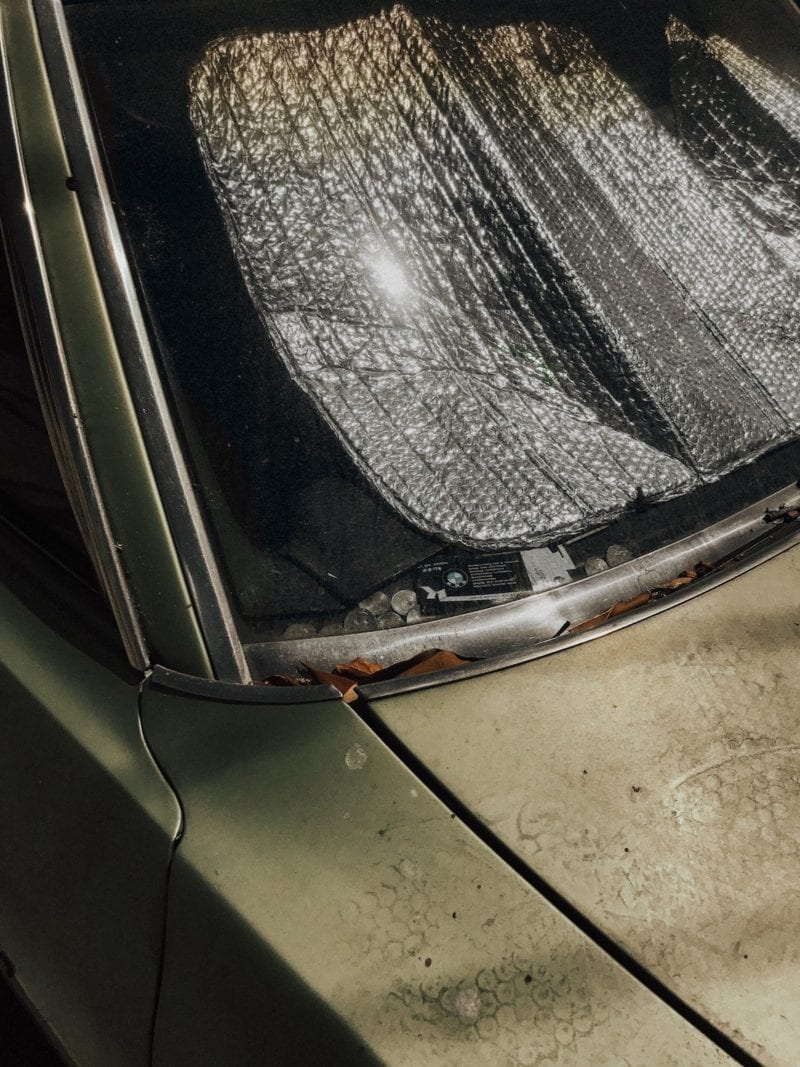Uncle Tony told me once that having a car is kind of like being in a relationship. It’s give and take. I didn’t understand this when I first bought my car, but by the end, I knew what he meant.
Cars are not cheap and they are not easy. They require time, energy and money, and with all the above they still don’t always last. Below is a non-conclusive guide compiled to help assist those who are not car-savvy, but wish to have a healthy relationship with their car.
Preventative Maintenance
There are some basic things that have to be changed in a car consistently no matter how good the car’s condition. These include:
Engine Oil
The cleanliness and level of the engine oil can be checked with a dipstick; most auto shops recommend that the engine oil and filter be changed every three to five thousand miles. Your engine oil should be changed consistently and its filter should be changed with it. A good rule of thumb for car maintenance is to check all your other fluids when you take your car in to get your oil changed. These include your windshield wiper fluid, brake fluid, power steering fluid, engine coolant, and transmission oil.
Windshield Wipers
These should be replaced between every six months to a year. When the wipers are not longer working efficiently, it’s probably time to replace them. The weather where you live can dictate the life expectancy of your windshield wipers greatly. Rainy areas may wear out the windshield wipers quicker while dusty areas may use up windshield wiper fluid more quickly.
Windshield Wiper Fluid
This one is pretty self-explanatory. Windshield wiper fluid is the Windex of cars and should be consistently topped up.
Brake Fluid
Your brake fluid should always be full. If it is not full, then it is a sign of either worn brake pads or a leak in the brake system. Either one of these should be checked out by a mechanic.
Power Steering Fluid
The power steering fluid allows for power steering, the ease of steering your car. The power steering fluid should be topped off and maintained. If your power steering fluid is low, that may be a sign that there is a leak in the power steering system and it should be checked out as well.
Engine Coolant
Engine coolant should always be full as well. If it is going down, that is a sign that there is a leak in the cooling system. A faulty cooling system can cause catastrophic damage to your motor, as your engine will overheat.
Transmission Oil
Your transmission oil should be checked every time you check your engine oil. If your transmission oil needs to be changed, it is important to change the filter as well.
Air Filters
These should be checked when your oil is changed as well, oftentimes the filters just needs to be cleaned out depending on the air quality of where you live. Keeping the air filters clean is important for fuel efficiency as well.
Tires
Tires usually have about 25,000- 50,000 miles of wear before they need to be replaced. There are several factors that can prolong or shorten your tire’s tread wear, which is your tire’s lifespan. These include suspension alignment, frequency of tire rotations and tire pressure maintenance.
Suspension Alignment
Suspension alignment is essentially making sure that the alignment of your wheels and your steering components are within your car’s manufacturer’s specifications. You should get your tires aligned every time you get them changed or drive in a way that can mess up your alignment such as driving over a pothole too fast or hitting a curb.
Tire Rotation
A good rule of thumb for tire rotation is to rotate them every time you get your oil changed.
Tire Pressure
It’s important to make sure your tire pressure is at the right level to help maximize gas efficiency and reduce tire wear or potential blowout. Most cars have a tire pressure monitoring system that will alert you when your tire pressure falls too low. If your car doesn’t have a TPMS, you can check your tire pressure and fill up at the air compressor station at gas stations.

When to Go to a Garage
Sometimes, there are things that you won’t be able to fix yourself. At this time, you’ll need a trusted person who knows cars better than you. This is where an auto shop comes into play. When it comes down to finding an auto repairperson, there are a few things to take into consideration.
First off, reviews. In order to get the best auto repair shop, it’s important to start with the recommendations of others. Check on Yelp, Google, or another review site to see what the customers are saying about the shop. Ask friends and family where they go to get their cars serviced.
Secondly, certifications. Make sure that the auto repair shop is properly certified. Usually their certifications are visible and they should be certified in National Institute for Automotive Service Excellence.
Third, clarity. Don’t be afraid to ask the mechanics any questions that you have. They should be able to explain to you exactly what needs to be done and why.
Lastly, fit. Certain auto shops specialize in specific kinds of cars. Depending on if your car is foreign or domestic, that can dictate the kind of shop you will want to take it to. Every car has its own nuances and you want a mechanic who is well-versed in the nuances of your car.
Your auto shop should be trustworthy, but it isn’t always easy to trust them. Sometimes it helps to bring someone along who knows a bit more about mechanics to ask questions or observe.
Once again, this is a non-conclusive list for the car newbie. Cars can be complex and can get stressful with strange lingo and confusing metal parts, but they aren’t impossible to understand. Unlike in relationships, you don’t have to wait until problems arise in cars to learn how to fix them.
What’s been the best car advice you’ve received?
Feature Image via Rick Bhatia












2 comments
I’ve just passed my driving test and this is so useful!
Cars are not cheap, that’s for sure. I’m glad that I won’t really be needing one in Hong Kong because the city’s so small and our public transportation is awesome. There’s so much that comes along with owning a car!
–
Charmaine Ng | Architecture & Lifestyle Blog
https://charmainenyw.com